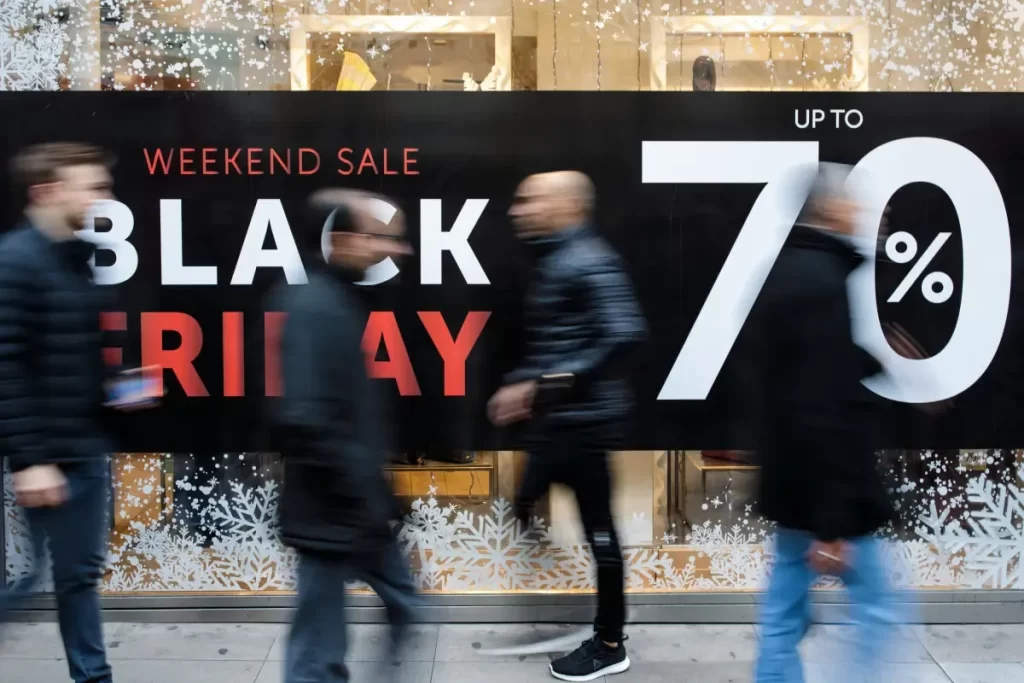Black Friday, the day after Thanksgiving in the United States, has transformed from a local shopping day into a global retail phenomenon. For trucking companies, particularly those that specialize in transporting high-value cargo, Black Friday represents one of the busiest and most critical times of the year. It is a day that requires logistical precision, operational efficiency, and robust planning to meet the soaring demand for goods across the nation. This blog explores what Black Friday means for the trucking industry and how it shapes the movement of high-value cargo during this intense shopping period.
Originally coined to describe heavy traffic and chaotic crowds in Philadelphia in the 1960s, Black Friday has since become synonymous with record-breaking sales and shopping extravaganzas. Retailers and consumers alike look forward to this day as a chance to either boost annual profits or secure heavily discounted goods. However, for the trucking industry, Black Friday has always been about ensuring that goods move seamlessly from warehouses to retailers and from fulfillment centers to consumers’ doorsteps. This historical evolution has positioned Black Friday as a vital event in the logistics calendar, marking the start of the holiday shopping season.
Black Friday does not simply represent a spike in sales; it represents a massive increase in freight activity. For weeks leading up to the big day, retailers stockpile inventory, warehouses ramp up operations, and trucking companies schedule fleets to accommodate this annual surge. High-value cargo, such as electronics, jewelry, pharmaceuticals, and luxury goods, requires specialized handling and secure transport, which adds another layer of complexity to logistics operations. The importance of trucking in this ecosystem cannot be overstated, as most goods purchased online or in-store depend on timely transportation by trucks to reach their destination.
E-commerce has redefined the dynamics of Black Friday. While brick-and-mortar stores remain relevant, online shopping has become the dominant mode of purchase for many consumers. Platforms like Amazon, Walmart, and Target witness an enormous influx of orders during Black Friday sales, with some reporting tens of millions of transactions within a 24-hour period. This shift to online shopping has added pressure on trucking companies to ensure timely deliveries to distribution hubs, local warehouses, and directly to consumers. The “last-mile delivery,” which refers to the final leg of the shipment journey, has become a critical focus area for the industry, particularly during Black Friday and the subsequent Cyber Monday
One of the most significant challenges for trucking companies during Black Friday is managing the surge in freight volume. The sheer scale of demand can strain even the most prepared logistics networks. Retailers must forecast demand accurately, while trucking companies must allocate resources efficiently to ensure timely deliveries. This often means hiring additional drivers, extending hours of operation, and deploying more trucks to accommodate the increase in shipments. For companies specializing in high-value cargo, the stakes are even higher. Ensuring the safe and secure delivery of expensive goods requires detailed planning and an unwavering commitment to excellence.
The expectations of modern consumers are higher than ever. Shoppers demand fast, reliable delivery services, often with options for same-day or next-day shipping. For trucking companies, this translates into tighter delivery schedules and minimal room for error. Black Friday amplifies these pressures, as late shipments can lead to customer dissatisfaction, canceled orders, and potential reputational damage for both retailers and logistics providers. To meet these expectations, trucking companies rely on advanced route optimization tools, real-time tracking technologies, and seamless communication with supply chain partners. These technologies ensure that trucks are not only on the road but also on time.
Transporting high-value cargo during Black Friday adds a layer of complexity to logistics operations. Unlike standard freight, high-value goods require heightened security measures to prevent theft, damage, or loss. This can involve GPS tracking, tamper-proof seals, and additional insurance coverage to protect the cargo in transit. Drivers handling high-value shipments must also undergo specialized training to ensure they are equipped to manage these goods safely and efficiently. For trucking companies, the responsibility of safeguarding these items while maintaining prompt delivery schedules is both a challenge and a testament to their expertise.
The environmental impact of Black Friday freight is a growing concern. The surge in trucking activity during this period contributes to increased fuel consumption, greenhouse gas emissions, and traffic congestion. According to some studies, emissions from freight transportation can rise by as much as 94% during Black Friday week. These environmental consequences have prompted trucking companies to explore sustainable practices, such as adopting fuel-efficient vehicles, optimizing delivery routes to reduce mileage, and incorporating electric or hybrid trucks into their fleets. While the industry is making strides toward sustainability, the challenges of balancing environmental considerations with operational demands remain significant.
Supply chain bottlenecks are another challenge during Black Friday. Delays at ports, congestion at warehouses, and a shortage of drivers can disrupt the flow of goods, leading to missed deadlines and frustrated customers. To mitigate these risks, trucking companies work closely with retailers, suppliers, and warehouse operators to streamline operations and improve communication. Collaborative planning, real-time inventory tracking, and flexible scheduling are some of the strategies employed to prevent bottlenecks and ensure that goods move efficiently through the supply chain.
Technology has become an indispensable tool for managing the complexities of Black Friday logistics. From automated warehouse systems to predictive analytics, technology enables trucking companies to anticipate demand, allocate resources, and optimize operations. Real-time tracking systems allow companies to monitor shipments and provide customers with accurate delivery updates. Additionally, data analytics tools help identify trends and patterns that can inform future planning and decision-making. For trucking companies specializing in high-value cargo, these technologies are particularly valuable, as they enhance both efficiency and security.
While Black Friday is undoubtedly one of the busiest times of the year for retailers and logistics providers, it is worth questioning whether truckers themselves experience the same level of chaos. Many truckers report that Black Friday is a peak period but not an unmanageable one, provided they have adequate preparation and support. Planning routes in advance, securing additional resources, and maintaining open lines of communication with dispatchers can help truckers meet the demands of this busy season. However, the intensity of the workload can vary depending on the type of freight being transported and the regions being serviced.
The future of Black Friday and its impact on the trucking industry is likely to be shaped by several trends. The continued growth of e-commerce will further increase the demand for efficient logistics solutions, while advancements in technology will enable companies to handle larger volumes with greater precision. Sustainability will also play a key role, as both consumers and businesses prioritize environmentally friendly practices. For trucking companies specializing in high-value cargo, adapting to these trends will be essential to maintaining their competitive edge and meeting the evolving needs of the market.
Black Friday is a pivotal event for the trucking industry, presenting both challenges and opportunities. From managing surges in freight volume to ensuring the timely and secure delivery of high-value goods, trucking companies play a crucial role in making this shopping phenomenon possible. At KSM Carrier Group, we take pride in our ability to navigate these complexities with precision and reliability. Whether it’s Black Friday or any other day of the year, our commitment to excellence ensures that your cargo is always on time and in safe hands.
What do you think? Will Black Friday sales continue to push the boundaries of logistics in the U.S. and around the world? Do truckers truly have the time to prepare and deliver everything on time during this peak period? Share your thoughts in the comments below—we’d love to hear from you!



Recent Comments